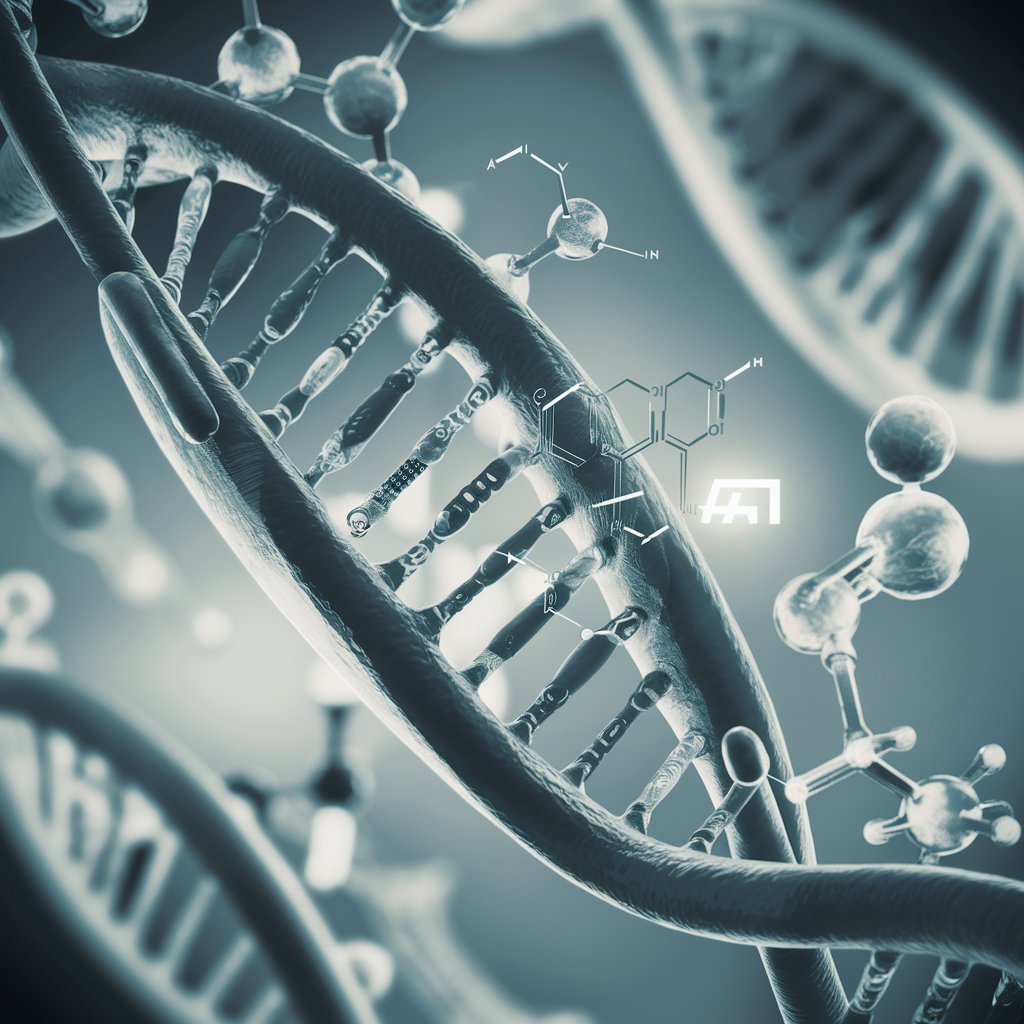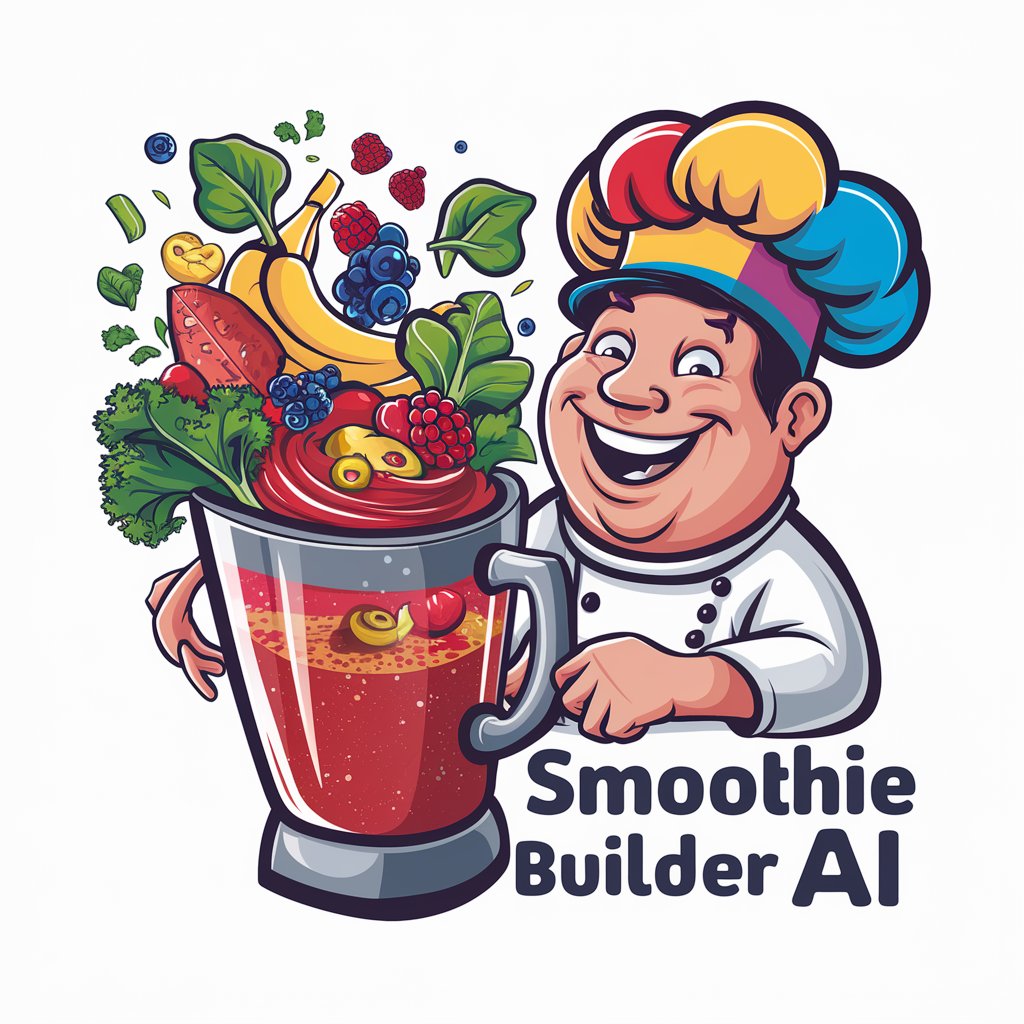Biochemistry - Biochemistry Insights

Welcome! How can I assist you with your biochemistry inquiries today?
Unlocking Biochemical Mysteries with AI
Explain the role of enzymes in metabolic pathways and their significance.
Describe the structure and function of nucleic acids in cellular processes.
Discuss the biochemical mechanisms underlying cellular respiration.
Outline the key steps involved in protein synthesis and its regulation.
Get Embed Code
Overview of Biochemistry
Biochemistry is a branch of science that explores the chemical processes and substances that occur within living organisms. It bridges the fields of biology and chemistry by focusing on the molecular level of life. The main purpose of biochemistry is to understand how biological molecules contribute to the processes that occur within living cells, ultimately affecting the functions of tissues, organs, and the organism as a whole. Examples of biochemistry in action include the study of metabolic pathways that provide energy to cells, the examination of DNA replication and repair mechanisms that underpin genetics, and the exploration of enzyme catalysis that drives countless biochemical reactions. Powered by ChatGPT-4o。

Primary Functions of Biochemistry
Understanding Metabolic Pathways
Example
Glycolysis and the Krebs cycle
Scenario
Biochemists study these pathways to understand how cells generate energy from nutrients, which is crucial for developing treatments for metabolic disorders like diabetes.
Investigating Genetic Information
Example
DNA replication, transcription, and translation
Scenario
This area of biochemistry is fundamental in genetic engineering, enabling the development of genetically modified organisms (GMOs) for agriculture and pharmaceuticals.
Exploring Protein Structure and Function
Example
Enzyme kinetics and protein folding
Scenario
Understanding how proteins work and how they fold is vital for drug design and to combat diseases related to protein misfolding, such as Alzheimer's disease.
Studying Cell Signaling and Communication
Example
Hormone action and neurotransmission
Scenario
Biochemists analyze how cells communicate to maintain homeostasis and how disruptions in these pathways can lead to diseases, aiding in the development of new therapeutics.
Target User Groups for Biochemistry Services
Researchers and Academics
Individuals in scientific research and academia, including students, who are exploring molecular biology, genetics, pharmacology, and related fields. They benefit from biochemistry by gaining insights into the molecular basis of life and disease, facilitating discoveries in medicine, environmental science, and biotechnology.
Healthcare Professionals
Doctors, nurses, and other medical professionals use biochemistry to understand the biochemical basis of diseases, interpret laboratory results, and develop treatment plans. Knowledge in biochemistry is crucial for diagnosing conditions and prescribing medications based on their biochemical interactions.
Biotechnology and Pharmaceutical Industries
Professionals involved in drug discovery, development, and production rely on biochemistry for creating new medications, vaccines, and diagnostic tools. Biochemistry provides the foundation for understanding how drugs interact with biological systems, optimizing their efficacy and safety.
Environmental Scientists
Experts studying pollution, conservation, and the impact of chemicals on ecosystems use biochemistry to assess environmental health and develop strategies for remediation and sustainability. They apply biochemical principles to understand how living organisms interact with their environment and respond to pollutants.

How to Utilize Biochemistry
Start Your Journey
Initiate your biochemistry exploration by visiting yeschat.ai for a complimentary trial, accessible without the need for registration or subscribing to premium services.
Identify Your Needs
Determine your specific needs or questions related to biochemistry, whether it be for academic research, professional development, or personal interest.
Engage with Biochemistry
Utilize the tool to ask detailed questions, seek clarifications on complex biochemical concepts, or explore biochemical processes and their applications.
Leverage Advanced Features
Make the most of advanced functionalities by structuring your queries to get specific, in-depth information tailored to your research or study focus.
Review and Apply
Carefully review the comprehensive responses provided, and apply this knowledge to enhance your research, studies, or professional practices.
Try other advanced and practical GPTs
Flashdrive
Carry your digital world in your pocket.

Real Estate Writer Pro
AI-Powered Real Estate Investing Insight

Beat Poet Navigator
Reviving beat poetry with AI.

Resolutio
Automate Legal Drafting with AI

R的人生导师
Empowering Life Decisions with AI

Tax Tutor Pro
Empowering Your Tax Journey with AI

Traduction Anglais - Français qui a du sens
Meaningful French translations powered by AI

Recommendation for Writing
Elevate Your Writing with AI

CRM Data Genie
Simulate Realistic CRM Data with AI

Smoothie Builder
Craft your perfect smoothie with AI

Signs
Crafting Visual Stories, Powered by AI

Charismatic Counselor
Empowering conversations, AI-powered support.

Detailed Q&A about Biochemistry
What kind of biochemical pathways can Biochemistry elucidate?
Biochemistry can provide detailed explanations of various biochemical pathways, including metabolic pathways like glycolysis, the Krebs cycle, and lipid metabolism, as well as signaling pathways involved in cell communication and regulation.
How does Biochemistry aid in understanding enzyme kinetics?
Biochemistry offers insights into enzyme kinetics by explaining the mechanisms of enzyme action, factors affecting enzyme activity, and mathematical models used to describe the rates of enzymatic reactions, enhancing understanding of catalysis and inhibitor effects.
Can Biochemistry help with drug discovery?
Yes, Biochemistry plays a crucial role in drug discovery by elucidating the molecular basis of diseases, identifying potential drug targets, and aiding in the design and optimization of therapeutic molecules through understanding interactions at the biochemical level.
How does Biochemistry contribute to genetic engineering?
Biochemistry contributes to genetic engineering by providing the molecular tools and knowledge necessary for manipulating DNA, such as restriction enzymes, DNA ligases, and CRISPR-Cas9, facilitating gene editing, cloning, and the development of genetically modified organisms.
What is the role of Biochemistry in nutrition and metabolism?
Biochemistry elucidates the biochemical basis of nutrition and metabolism, explaining how nutrients are absorbed, metabolized, and utilized by the body, and the biochemical pathways involved in energy production, storage, and utilization, guiding dietary recommendations and understanding metabolic disorders.
